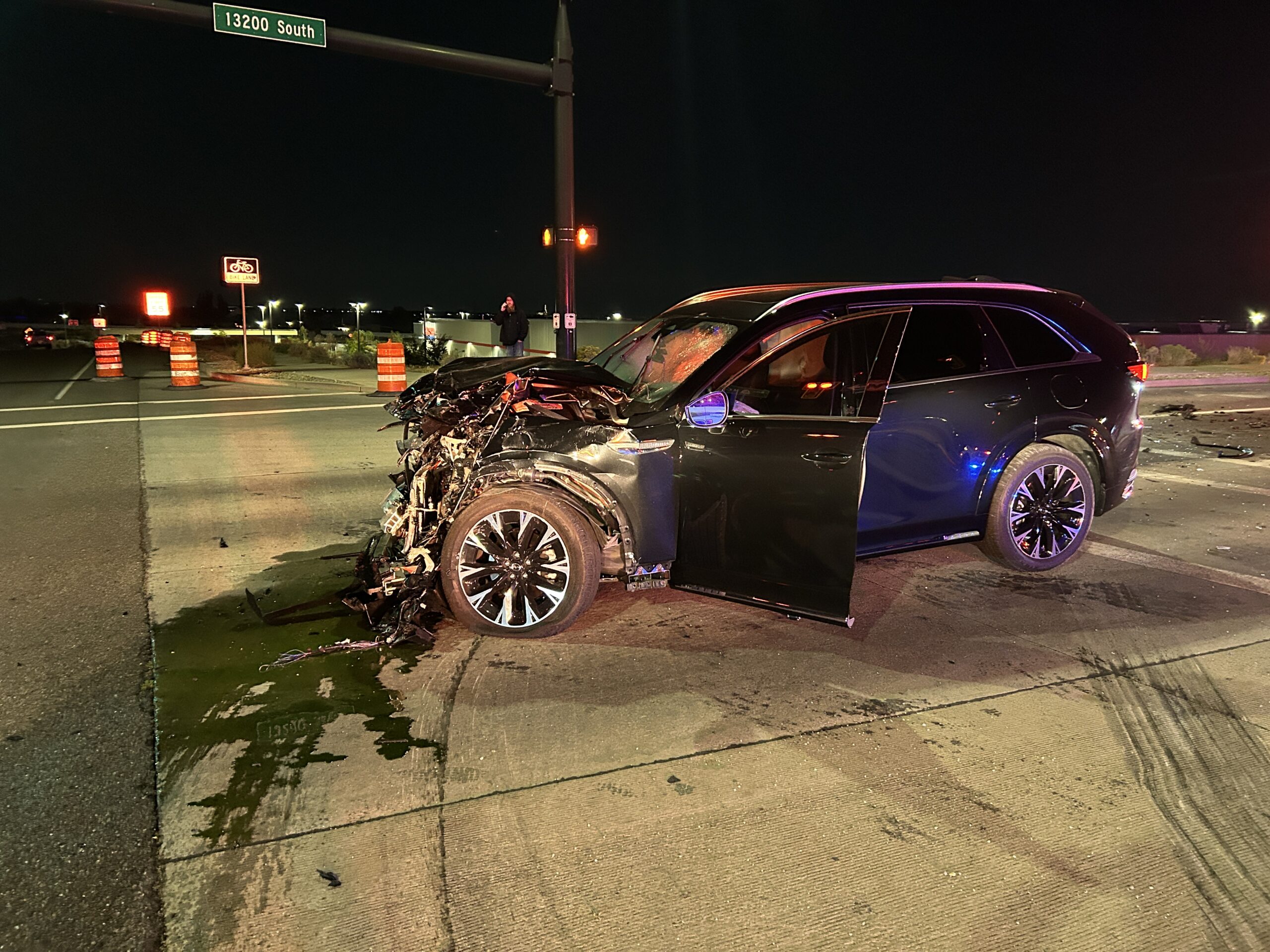For couples with children, having a spouse who is suddenly unable to share their care can be difficult. From getting them to and from school and other activities to providing for their needs, these responsibilities may now fall on just one parent.
The victim of the car accident can file a lawsuit against the person responsible or seek compensation from their insurance company for lost wages. But because the spouse was not a direct victim, they cannot do the same.
However, there is another option for spouses to seek compensation for some of the losses that they are facing.
Filing for loss of consortium is a way for spouses to get compensation for a variety of losses. This includes both emotional and financial losses caused by the injuries their spouse has sustained. Keep reading to learn what loss of consortium claims are, who may qualify, and how to file for them.
The Cost of Car Accidents on Victims
When an individual is injured in an accident, the effects can be far-reaching. Physical pain is far from the only cost. The victim is also left dealing with a variety of fallouts caused by the accident and their injuries.
They’ll need to get their vehicle replaced or repaired. In the case of more serious accidents, they may miss work. With that, they’ll lose wages that they were expecting to earn. If their injuries are life-changing, the person may not be able to go back to the same job or position that they held prior to the accident.
If the person had children, they may no longer be able to care for them as they once did. Additional childcare may be necessary while the victim attends physical therapy. Long-term childcare may even be needed if he or she can no longer care for their children on their own.
Victims who are attending college or otherwise continuing their education may miss classes. They may even have to drop out for the semester or longer. This often means not only delaying their education but also losing out on the tuition that they’ve already paid for.
These costs, and the emotional toll of a car accident and injuries, add up quickly. But an additional effect of accidents isn’t talked about quite so often; the toll on the spouse.
The Cost of Car Accidents on Spouses
If an individual is killed in a car accident, his or her spouse can file a wrongful death lawsuit in their honor, claiming loss of companionship. This isn’t limited to spouses either; children, stepchildren, parents, and other immediate family members who were beneficiaries of the deceased may also seek a wrongful death settlement for damages caused by the death of their family member.
But just because their husband or wife has survived the accident doesn’t mean that the spouse of a victim doesn’t suffer losses.
After an accident, the spouse of a victim will also deal with their share of unexpected expenses and emotional challenges.
They may find themselves caring for their children more than they once did. In some cases, the spouse may need to miss work to care for their husband or wife, or for their children if their spouse is unable to. This can mean lost wages. In the case of severe injuries, a spouse may even find themselves in the difficult position of deciding to leave their own job behind in order to care for their spouse full-time.
A spouse also suffers emotional damages. If the victim suffered debilitating injuries, they may lose the companionship and support of their spouse, likely for the rest of their lives.
Because their spouse is still alive, the same types of claims cannot be filed as they can be by a spouse after their loved one has died. However, there is an alternative; filing a loss of consortium.
What is a Loss of Consortium?
A loss of consortium is a claim that can be brought by an individual after his or her spouse has suffered an injury as a result of someone else’s negligence or wrongdoing. The claim, filed against the person responsible for the accident, carries a dollar amount meant to be compensation for some of the damages, including both physical and emotional damages, that the spouse has suffered as a result of their husband or wife’s injuries.
However, a loss of consortium isn’t something that can be filed after any kind of accident or incident. Instead, there are criteria that must be met before a claim can be brought up.
Defining an Injury
In order for a loss of consortium to be properly filed, the victim must have suffered a significant injury. Injuries cannot be minor. They also cannot be ones that the individual will easily recover from without them causing future effects on their happiness and well-being.
In most cases, injuries need to be those that are permanent and must change the injured victim’s life. This includes the following types of injuries:
- Complete or partial paralysis of one or more of the victim’s extremities
- Disfigurement that is significant
- Injuries that will render the individual incapable of performing the jobs that they once did
All injuries must be the result of the accident.
It’s important to prove that the victim suffered severe injuries. The claim for loss of consortium will also need to prove that the spouse has suffered some impairment. They may also prove that they’ve lost some benefit of their marriage and relationship because of their loved one’s injuries. In most cases, emotional pain is not enough. Instead, additional responsibilities, lost wages, the burden of caring for children on their own, or similar instances must be proven when filing a claim.
Who Can File a Loss of Consortium?
Unlike filing a wrongful death lawsuit, a loss of consortium claim cannot be filed by just any dependent of the injured victim.
In fact, even a fiancée or long-term girlfriend or boyfriend cannot file a loss of consortium claim. This is true even if the victim and their significant other share children, a home, or other property. Or if the spouse is now caring for their injured loved one full-time, or taking on additional emotional or financial responsibilities.
Only a married spouse can file a claim for a loss of consortium. The couple must be legally married such that their union is recognized by the laws of the state of Utah.
Do Statutes of Limitations Apply to Loss of Consortium Claims?
An injured individual is subject to a statute of limitations in order to file claims or pursue a lawsuit against the person responsible for the accident or their injuries.
In the same way, a spouse is subject to a statute of limitation when filing a loss of consortium claim. In fact, they are subject to the same statute of limitations as their spouse is.
The start date for a statute of limitations begins on the day that the victim was injured. Statutes of limitations vary by state, and also vary by the type of accident.
Once the time period outlined by the statute of limitations has passed, a victim and his or her spouse can no longer file for loss of consortium claims. If you plan to file a claim, it’s important to start the process as early as possible following an accident. This will help you to avoid missing that important deadline. This means avoiding losing out on your chance to get important compensation that you may need to continue in your new normal.
How Do You File a Claim for Loss of Consortium?
Filing a claim for a loss of consortium can be confusing, especially if you don’t have legal experience. Hiring an attorney can make the process easier. It will ensure that all claims are handled properly and within the necessary time limits. The same car accident attorney handling the injured victim’s claims can also file a claim loss of consortium for the spouse.
Whether you choose to file your claim with the help of an attorney or not, you’ll face a deadline. Spouses need to file their claim for loss of consortium at the same time that their injured spouse files his or her own claims.
When filing a claim for loss of consortium, it’s important to keep in mind that all claims are subject to the same statutory limits that apply to the victims’ claims. This includes limits on noneconomic damages.
If a government entity is involved and will be the one paying for the submitted claims, additional guidelines apply. The claims of the injured victim and of the spouse cannot exceed the liability limit for a single individual, even though both the spouse and victim are filing claims. In short, these claims are seen as a single claim for damages suffered by the victim.
Besides following those guidelines, the spouse will also need to prove a loss of consortium. This involves building a case that proves that the other spouse was severely injured in an accident or other incident. Planning to include details about lost wages or the burden of caring for your children on your own? You will also need to provide proof that your spouse is no longer able to work or help with your children’s care.
Utah Law: Filing Loss of Consortium Damages
If your spouse has suffered serious injuries in a car accident, you may be able to file a claim for loss of consortium damages. While the victim may have been the one to suffer the injuries, the spouse is also affected.
Following a serious accident, the uninjured spouse is often left dealing with a variety of physical and emotional burdens. He or she may be left taking on additional responsibilities at home. They may find themselves the primary caretaker for their children, while they once shared caretaking responsibilities with their spouse. If their husband or wife’s injuries were severe, they may need to miss work or even leave their job in order to care for them. While this may be temporary, in some cases, it could be permanent. If they continue to work, the burden of providing for themselves, their spouse, and their family may suddenly fall on their shoulders alone.
Beyond those damages, the spouse will also suffer emotional pain and suffering. Their spouse may no longer be able to offer the same companionship and support that they once did. These changes may be permanent. This will change the course of the spouse’s life in some of the same ways that the victim’s life has been changed.
Making the Decision to File Loss of Consortium Claims
Nothing can make up for the life-changing aspects of having a spouse suffer permanent, debilitating injuries. But filing a claim for loss of consortium damages will allow the spouse to seek some compensation. This includes compensation for both the physical and emotional challenges that they are facing.
If you or your spouse has been the victim of a car accident or any negligent act by another individual, you need an attorney on your side. He or she will help you to navigate the complicated legal practice, understand your rights, and file claims properly.
WE’RE HERE TO HELP
Get your free consultation today!
CONTACT US




